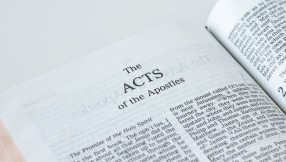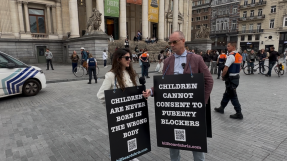Archbishop Paul Reeves: controversial icon
After just five years as Anglican Archbishop of New Zealand, in 1985 he quit to become the country's 15th Governor General. No one holding the office since can claim Maori origins.
At the time the appointment raised eyebrows. "How can an ordained priest fulfil this
constitutional role?" demanded opposition leader Jim McLay. Maoris were
unanimously delighted.
Paul Reeves cut a commanding figure, standing well over six feet with a shock of platinum hair. A man of humble origins, Reeves was ordained deacon in 1958, he studied at St Peter's College Oxford 1959-61, returning to New Zealand in 1964. He taught Church History and was Director of Christian Education in Auckland diocese, then followed election as Bishop of Waiapu and after that Auckland. On the Anglican world stage he became an influential voice at Primate's meetings.
He was a churchman who never shied away from controversy. He was highly visible in the campaign against the 1981 Springboks tour. New Zealand is fanatical about rugby but deeply aware of racial issues. The campaign led to hotels banning the visitors so they were forced to sleep in airport hangars and this tour became a landmark in the demise of apartheid.
Reeves was never entirely at home with the pomp associated with the Governor General's Office. He found himself at odds with the monetarist reforms of the government that appointed him, arguing in 1987 that they were creating "an increasingly stratified society". It earned a rebuke from the PM.
A year later he defended his views: "...the spirit of the market steals life from the vulnerable but the spirit of God gives life to all". Relations with Lange were never repaired. After leaving office he went to New York to be the first Anglican Observer to the United Nations (1991-3). Reeves had the prestige and the presence needed to make the project work.
In retirement Reeves was Deputy Leader of the Commonwealth Observer group to
South Africa. He continued to do diplomatic work in the Pacific region, chairing a Fiji Constitution Review Commission from 1995 until 1997. It led to Fiji's readmission to the Commonwealth until its suspension in 2000.
Even so he was never one to duck controversy he spoke out against police being issued with taser guns and supported New Zealand becoming a republic, suggesting if renouncing his knighthood was a prerequisite to being a citizen of the republic, "I think it would be worth it."













